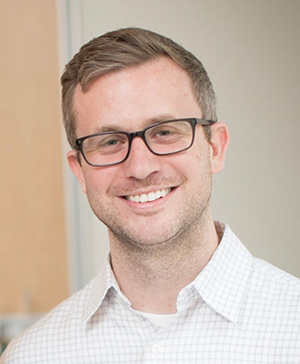Biomedical Discovery in the Age of Artificial Intelligence
Andrew Beam, PhD
 - Chief Technology Officer, Flagship Labs 97, Inc.
- Chief Technology Officer, Flagship Labs 97, Inc.
- Senior Fellow, Flagship Pioneering
- Associate Professor, Harvard University
- Associate Editor, NEJM AI
December 3, 2024
3:30pm lecture, 4:30pm reception
Minot Room and Lahey Room, 5th Floor, Countway Library
Harvard Medical School
10 Shattuck Street, Boston, MA 02115
Registration is only required for those without a Harvard ID.
If you are not a Harvard ID holder, please email Samantha Lemos to add your name to the guest list for entry to Countway Library.
Abstract
Artificial Intelligence has catalyzed remarkable advances in biomedical science, with example breakthroughs in protein structure prediction and generative modeling of biological systems. Drawing from recent developments and my own research in protein diffusion models, I will examine the complex relationship between AI and scientific discovery. While the success of these specialized models is undeniable, they present an intriguing paradox: unlike large language models, biomedical AI systems have not demonstrated comparable benefits from increased scale. Instead, their effectiveness often stems from carefully crafted inductive biases that enable efficient learning from limited datasets, with attempts at scaling showing diminishing returns.
Building on these insights, the lecture will examine current claims about large language models' potential to revolutionize scientific discovery. While these models excel at synthesizing vast amounts of scientific literature, their ability to discover new scientific knowledge will be bottlenecked by access to an experimental platform that will let them design and test new hypotheses. I argue that without the capacity to design and control real experiments, AI systems will remain stuck at the forefront of scientific knowledge, rather than advancing it. This limitation points to a necessary shift in how we develop AI for scientific applications, emphasizing the need for systems that can actively participate in the experimental process.
Bio
Andrew Beam, PhD, is Chief Technology Officer at Flagship Labs 97, Inc., Senior Fellow at Flagship Pioneering, and Associate Professor at Harvard University. His research focuses on developing novel artificial intelligence methodologies for healthcare and life sciences applications. Previously, he led the development of core machine learning models for protein engineering as founding Head of Machine Learning at Generate Biomedicines, where he built and directed the company’s machine learning strategy. Dr. Beam holds three bachelor's degrees in Computer Science, Computer Engineering, and Electrical Engineering, an MS in Statistics, and a PhD in Computer Science with a focus in Bioinformatics from North Carolina State University. He completed his postdoctoral training in Biomedical Informatics at Harvard Medical School. His contributions to AI in healthcare have been recognized by Modern Healthcare's "40 Under 40" list and the Robert Wood Johnson Foundation's Pioneer Award.
